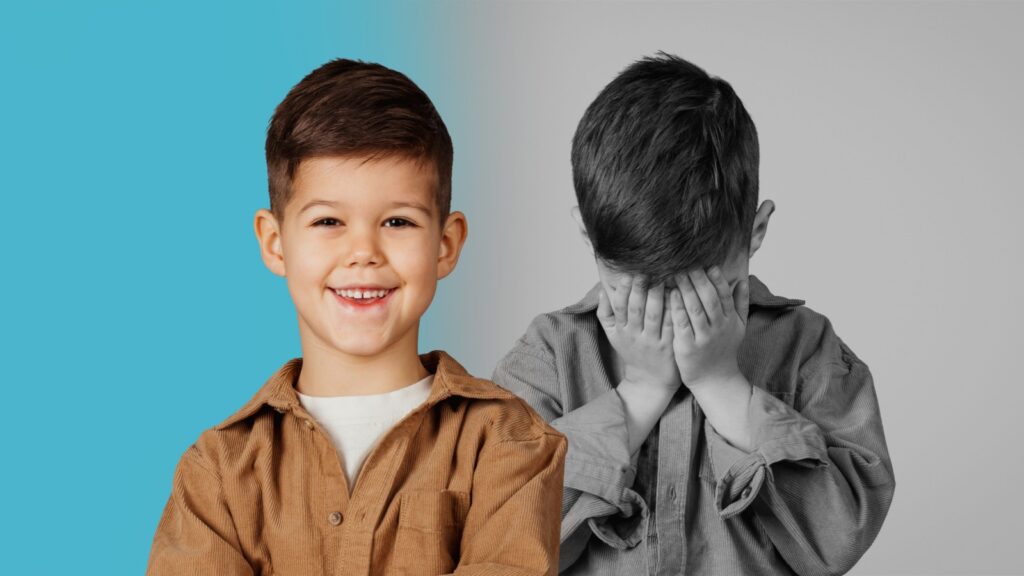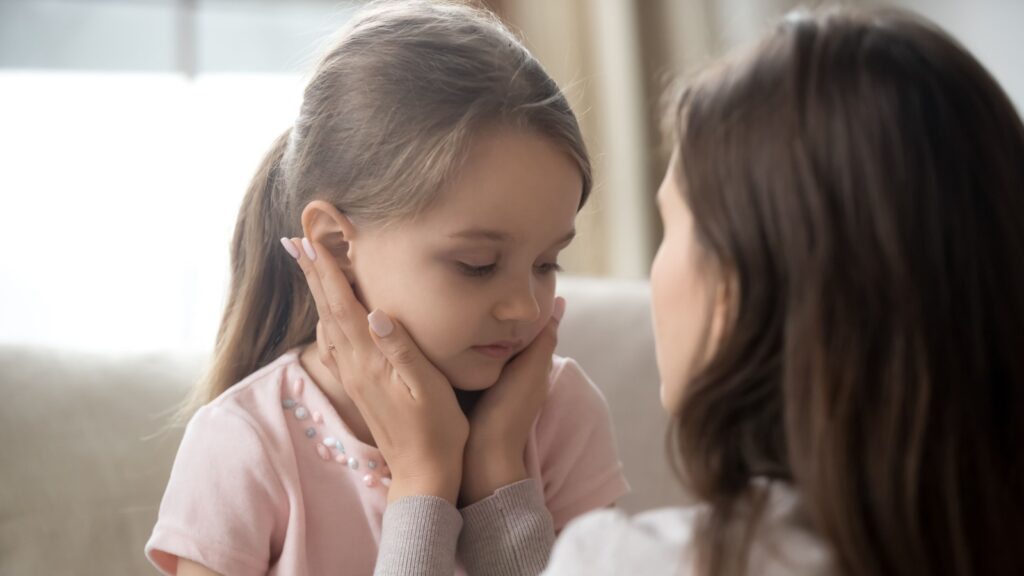Becoming a parent can be one of the most rewarding but difficult things you will do in your life. When you consider all of the advice coming from family, friends, and the internet, it is completely normal to become overwhelmed in a myriad of myths that have carried on from generation to generation. While some advice may be well-meaning and hold value, other parental wisdom may be shockingly detrimental to a child’s emotional and mental health.
Good Parents Always Put Their Children First

This myth implies that when a parent makes any sacrifice, the act of sacrifice is done selflessly. Therefore, the selfless parent means when you are doing these acts of sacrifice, you must be a good parent. As a parent, making unlimited self-sacrifices and not caring for yourself or sacrificing for your well-being in every situation for your child does not result in good parenting; it results in fatigue, lack of effectiveness, and bitterness. A person who is cared for and is in balance will be a more effective parent. Caring for your personal mental and physical health allows your child to see you modeling self-care, become aware of their own needs and boundaries, and manages their emotional state.
Strict Parenting Produces Well-Behaved Children

While discipline and structure are important, strict or harsh parenting can often do more harm than good. Children who grow up in an overly authoritarian home may become frightened and defiant or be emotionally crushed and learn to lack self-esteem. Often, a more healthy and sustainable relationship is one that combines discipline with effective communication that teaches children to make decisions based on learning, not fear.
Physical Punishment Teaches Discipline

Many parents believe physical punishment is a helpful way to teach their young child to differentiate between acceptable behavior and unacceptable behavior. Evidence indicates that spanking as a form of physical punishment leads to increased aggression, anxiety, and even long-term behavioral problems. Parents can more effectively teach responsible behavior through positive discipline strategies, including setting limits, providing time-outs, and teaching natural consequences.
Crying It Out Makes Kids Stronger

The belief that allowing a baby or child to cry without comforting them will help them, build independence and strength is not only outdated but also harmful and wrong. There is research, for example, which evidences that prolonged crying can increase levels of the stress hormone, cortisol and attachment problems. Comforting a child who is crying does not develop weakness, it develops trust and emotional safety in the child which will facilitate their progression into strong, self assured and emotionally stable adults.
More Praise Equals More Confidence

Although recognizing a child for everything they do may seem like a good strategy to boost self-esteem, too much or too general praise may backfire. Research shows children that receive limitless praise may depend on and expect praise from the outside world which can lead to self-motivation struggles. In addition, rather than saying “You are so smart!” which praises the child directly, consider saying, “I love how hard you worked on that puzzle,” which praises the child for their effort to build resilience and intrinsic motivation.
Kids Should Always Be Happy

It is human nature for parents and caregivers to desire their children to be happy. However, if something negative or disappointing were to happen, it can be damaging to spare children from disappointment, failure, or sadness. Life has its ups and downs and it is important for children to learn how to process negative emotions, so they build emotional resilience to the inevitable highs and lows of life. Rather than attempting to “fix” every situation, help children learn positive parenting skills and healthy coping abilities.
If You Love Your Kids, They Will Know It

While love is important, it is not safe to expect your child to just “know” they are loved without showing or telling them. Children need to hear that they are loved, feel that they are loved through physical touch, and have quality time together to feel loved. Hugs, having a real conversation, and saying “I love you” are all ways to indicate your love. Showing these means of expression will strengthen your relationship.
Talking About Tough Topics Will Scare Kids

Certain parents decline to discuss death, body safety or even mental health because they think they are going to scare or alarm their child. While it may seem scary for a parent to navigate these conversations, young children may not have the ability to process these difficult feelings without these conversations taking place. Having conversations about difficult subjects that are appropriate for a child’s development can help kids feel more safe in the world, help them feel more informed, and realize they can tolerate life’s challenges.
Good Parents Don’t Say No

Most parents worry that too many “no’s” might inhibit their child’s independence or creativity. However, boundaries are essential to parenting. Children need to learn that not everything is available or acceptable, and “no” allows them to build patience, problem-solving skills, and respect for rules. When you say “no”, you’re teaching your children that there is some amount of love and kindness behind it, and they won’t grow angry or frustrated.
Kids Will Naturally Learn Manners

Good manners and respectful behavior do not happen without intentionality. If you simply expect your child to say “please” and “thank you” instinctively, you will probably be disappointed. Manners are not innate; they are a behavior that is modeled and repeated. Therefore, parents need to consistently model and encourage respectful behavior in the daily context of their lives.
Screen Time Always Harms Kids

Spending too much time in front of a screen can be a downside, but completely dismissing screen time ignores the potential benefits of this time. Screen time can take many forms, educational apps, interactive storytelling, coding or digital art as creative endeavors, which meet our definition of learning in addition to already addressed forms of learning. Addressing screen time is about providing balance to the parenting problem. As a parent, you want to make sure the screen time is not replacing important moments of physical activity, social interactions, or play stated matter-of-factly in the world, and education can also emerge from your screen time in addition to all these other examples.
Parenting Should Come Naturally

Most new parents think they should automatically know what to do in every situation. The reality is that parenting is a process of learning, and asking for help, reading books, or making mistakes along the way is natural. No one knows all of the answers, and all parents develop and change over time.
More Activities Mean a More Successful Child

Many parents want their children to have the advantage of being involved in as many extracurricular activities as possible. Being overscheduled can lead to stress, burnout, and unstructured playtime which is critical to creativity and emotional development. Children need unstructured time to be children, to explore, and relax.
Good Behavior Should Be Rewarded with Gifts

Incentives can be motivating, but when children are always incentivized with toys or treats, they may learn to only act in positive ways when it is connected to receiving something material. You should always emphasize the internal motivation of the good feelings attached to accomplishing something, acting responsibly, or being kind, because internal motivation is usually better than external rewards.
A Child’s Personality Is Set in Stone

Some parents think a child is simply shy, aggressive, or stubborn, and it’s a given that nothing will change that. However, personality traits can shift based on environment, parenting style, and life experiences. Give children the opportunity to grow, change, and develop confidence in multiple areas of life – don’t label them.
19 Ways You’re Accidentally Hurting Your Child’s Confidence

From careless jokes to tiny habits, what are seemingly harmless actions can slowly chip away at their self-esteem and leave them doubting themselves for years. So, before you accidentally raise an adult who second-guesses every decision, check out these 19 confidence-killing parent habits you are possibly guilty of— without even knowing it.
19 Ways You’re Accidentally Hurting Your Child’s Confidence
17 Things Boomers Did as Parents That Millennials Don’t

Boomer parents? That was a whole different breed. Wild. No helmets, no counseling, and certainly no organic fruit pouches. If you grew up with a “because I said so” mum or a father who disappeared behind a newspaper, welcome to the club. Millennial parents are rewriting the playbook.
17 Things Boomers Did as Parents That Millennials Don’t

